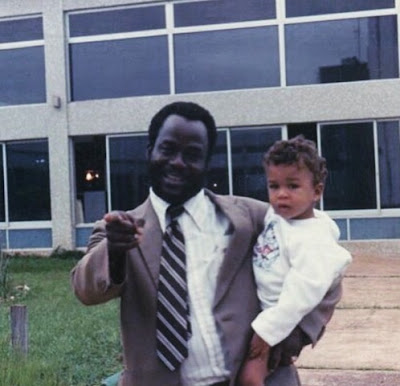The
two biggest mobile telecommunication operators in the country, MTN
Nigeria and Globacom, generated over N9bn for the local music industry
in 2014 through the monetisation of caller tunes.
While MTN generated over N5bn for the
Nigerian musical artistes who sell their contents as caller tunes on its
platform, Globacom is said to have brought in about N4bn.
The money generated for the industry was
in form of royalties paid to music artistes who served or are still
serving as brand ambassadors to the two telecoms companies in the year.
ADVERTISEMENT
The
Glo music ambassadors, whose contracts were recently renewed, are
Nigeria’s leading music stars, Peter and Paul Okoye (PSquare), Oladapo
Oyebanjo (D’Banj), Chinedu Okoli (Flavour), Jude Abaga (M. I.),
Oluwatobi Ojosipe (Wande Coal), Omawumi Megbele, Bez Idakula, Burna
Ogulu (Burna Boy), Ego Ogbaro and Sammie Okposo.
Globacom also signed on hip hop
sensation, Ayodeji Balogun, popularly known as Wizkid, after he
terminated his contract with MTN. It also signed on the Mavin crew of
Koredo Bello, Reekado Banks and Hadizah Blell (Di’ja).
However, the leader of the Mavin Group,
Michael Ajereh (Don Jazzy) leads other music artistes on the MTN
network. He is joined by Tiwa Savage, Sidney Esiri (Dr. Sid), Olanrewaju
Fasasi (Sound Sultan), Iyanya Mbuk, Chidinma Ekile, Bankole Williams
(Banky W), Kingsley Okonkwo (KCee) and David Adeleke (Davido).
MTN also recently signed on the visually impaired music artiste and producer, Cobhams Asuquo.
Our correspondent obtained the figures
from the telecommunications companies on Wednesday, amid plans to
announce an on-demand music service.
An employee in the Corporate Affairs
Division of Globacom, who pleaded anonymity, said that apart from paying
“about N4bn in form of royalties to Glo music ambassadors, Glo plans to
lead the music streaming business in the future, which valuation is
estimated to be about $8.5bn (N1.7tn).”
He said Globacom’s interest in the music
streaming business might be due to the decline in digital download
business, adding, “The streaming business is projected to grow at almost
40 per cent annually and will probably be over $2bn (N393bn) business
in 2016.”
It was gathered that the new and rising
stream of revenue for the telecoms firms might have accounted for the
recent scramble for top music artistes in the country by both Globacom
and MTN.
While MTN declined to renew the
contracts of some of its music brand ambassadors last month, Globacom
quickly poached them with higher bids.
However, aside the over N5bn generated
for the music industry, MTN said the brand ambassadorship, appearances
and performances fees made for the artistes amounted to over N500m.
“MTN has invested more than N1bn in
talent discovery and development through the Project Fame sponsorship
platform,” the company’s General Manager, Corporate Affairs, Miss Funmi
Onajide, said.
“The recent rebasing of the country’s
Gross Domestic Product puts the contributions of the entertainment/music
sector at $7bn (N1.4tn) of the total value of $510bn (N100.4tn). This
represents 3.7 per cent contributions to the total GDP growth,” she
added.
According to her, MTN’s leadership contribution in the sector has impacted positively on the lives of Nigerian creative talents.
Onajide stated that beyond music, “MTN
has also made significant investments, partnerships and contributions to
helping to address distribution and monetisation challenges of other
creative talents.”
The Managing Director, Universal Music,
Sweden, Per Sundin, had in December 2013 urged telecoms firms in Nigeria
to take to streaming the contents of their music ambassadors “rather
than just serving as ring tones.”
“I am 100 per cent sure that this is the
future. Streaming services will be the next step for global music
consumption,” he had said.







